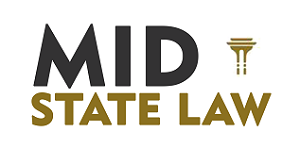When you file for bankruptcy, the negative impact on your credit score is immediate. However, that does not mean that your credit will never recover. In fact, we have seen some clients whose credit scores actually improved after bankruptcy. The key to improving your credit is diligently repairing your credit and repaying all debts in a timely manner.
Bankruptcy stays on your credit report for 10 years, but if you can manage your finances well after filing for bankruptcy with the help of Cain & Herren attorneys, you may be able to improve your credit score within that time frame. Capably managing your credit means minimizing credit card balance utilization, paying off balances promptly and punctually repaying any secured loans backed by collateral or deposits.

The exact amount that your credit will improve is dependent on the type of bankruptcy you filed, how long your case lasted and your pre-bankruptcy credit history. For example, if you filed Chapter 7 bankruptcy and you had an excellent (850-800), very good (740-799), or good (670-739) credit score before your bankruptcy, your FICO credit score could drop by 200 points after your bankruptcy.
But if your credit score was low before filing for bankruptcy, a high number of missed payments or maxed out cards weighing down your score, you can expect to see a significant improvement in your score once your bankruptcy case is closed. The majority of filers see a boost in their scores around 680 or 630 post-bankruptcy.
How quickly your credit will improve after bankruptcy also depends on how you handle re-establishing new credit. If you are trying to get a mortgage after bankruptcy, for example, lenders will scrutinize your job stability, income and your repayment history. However, if you can demonstrate that you are capable of repaying debts on time after bankruptcy and show an active savings account, a banker will likely be willing to lend you money at a reasonable rate.
Many people struggle to qualify for a mortgage after filing for bankruptcy. This is because the lender will be examining your disposable income to determine how much of it you can afford to pay toward your debts. Some types of debt, including alimony and child support, are generally non-dischargeable in bankruptcy, so those must be paid in order to become mortgage-ready.
To re-establish your credit, you can seek out a secured credit card or ask a trusted friend to become an authorized user on one of your accounts. Credit builder loans are also available at community banks and credit unions with affordable interest rates and are an effective way to establish a reliable payment history. Gas station and local retail credit cards often have looser credit requirements than unsecured cards and can help you rebuild your credit score. You can also consider a government-insured loan, such as an FHA or USDA-backed mortgage for rural communities.
Cain & Herren, ALC
2141 W Vineyard St, Wailuku,
HI 96793, USA
+1 (808) 242 9350
cainandherren.com






